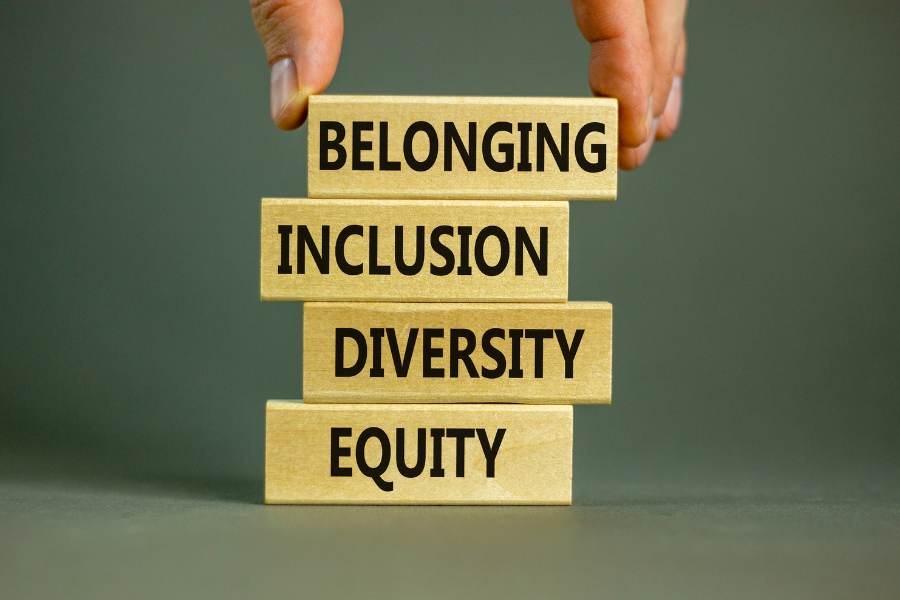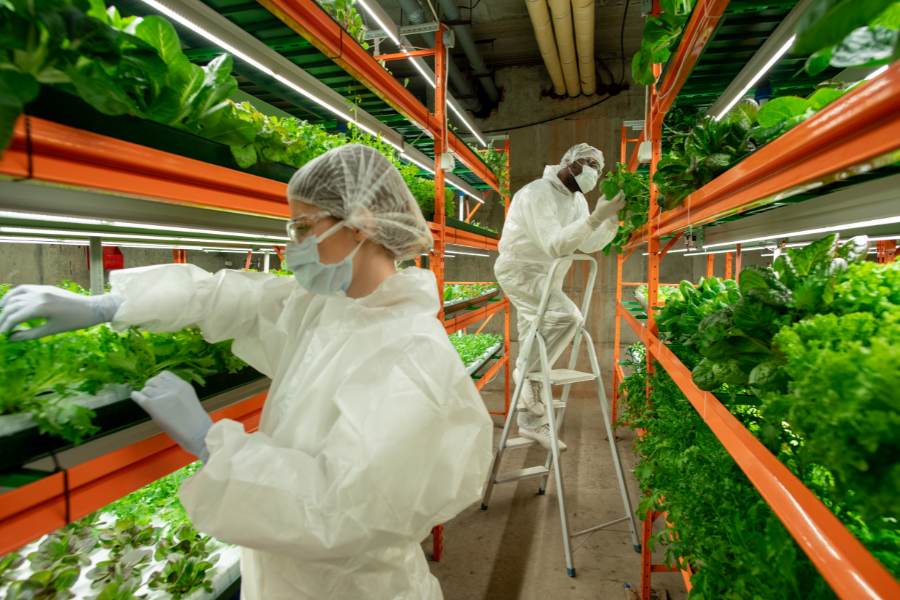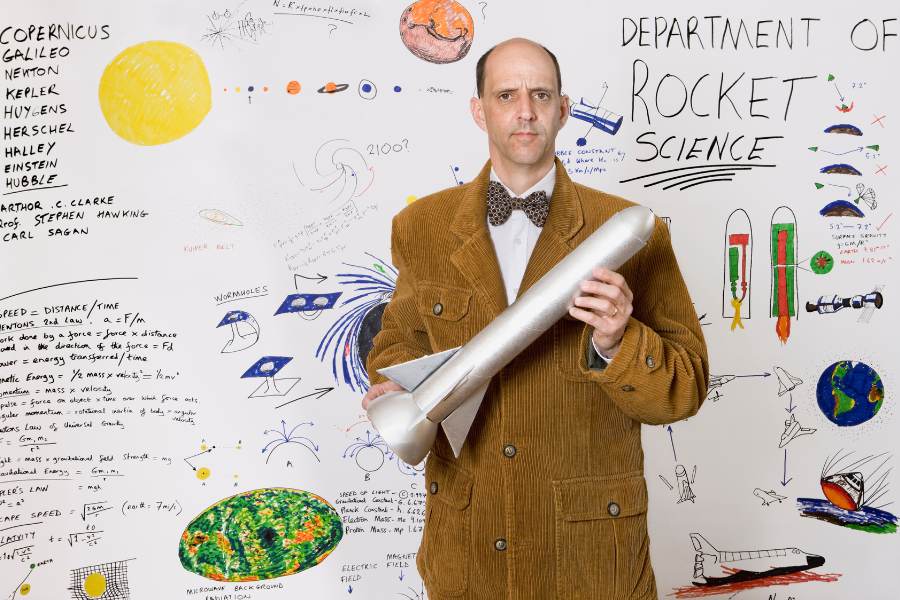Find the best occupations in this career options list to help you choose the most meaningful careers that actually make a difference in the world.
When figuring out your career path and selecting a career, it’s important to take into account your interests, abilities, and values since this will improve your chances of finding work that is satisfying and meaningful.
Doing these career choice quizzes will help you become aware of the best career options in the world so you can select the most fulfilling careers that actually make a difference and are meaningful and satisfying for you.
Contents
- Is the traditional career path dead?
- The factors affecting the career choices of students today
- How to choose the best occupations for the most meaningful careers
- #1. Social work careers
- #2. ESG career options
- #3. DE&I career options
- #4. Education & teaching careers
- #5. Wildlife conservation careers
- #6. Seed saver & curator careers
- #7. Vertical farming careers
- #8. Climatologist or climate scientist careers
- #9. Renewable energy careers
- #10. Waste management specialist careers
- #11. Sustainable design careers
- #12. Vaccine research career options
- #13. Humanitarian medical careers with MSF
- #14. Robotics engineering careers
- #15. Astronautics & space exploration careers
- #16. Rocket scientist careers
- #17. Mental health therapist career path
- #18. Herbalists & Alternative Medicine career path
- #19. Life coaching and training careers
- #20. Social entrepreneur career path
- #21. Volunteering careers
- Share this:
- Like this:
- Related
Is the traditional career path dead?
Whether the traditional job route is “dead” depends on how you define it and what you think of career options. People’s attitudes about and choices regarding careers have indeed evolved, and many are opting to pursue more varied and adaptable career pathways that might not fit a conventional paradigm.
It used to be common for most people to follow a linear career path, from education to a particular job or profession, with the expectation that they would stay with that company for a considerable amount of time.
However, the employment market has grown more diversified and dynamic, and people have different aims and interests when it comes to their jobs, so the traditional career path may not be as desirable today.
Nowadays, choosing your career is much more complex as many young people are opting to pursue unconventional career options or alternative careers that entail jumping between professions, founding startups, working as independent contractors, or choosing freelancing career options.
Others are deciding to explore dual careers that combine different passions or interests, or that enable them to work remotely or flexibly. The ideal career path for you will depend on your objectives, principles, and personal situation.
Whether or not it conforms to the conventional paradigm, the best question to ask yourself is, “What is the best career for me at this point in my life?”, to discover the best occupation that is satisfying and relevant to you.
Your childhood career choice may not be the best occupation for you today, since the world has changed significantly. According to some reports, the average American employee will change between 3 to 7 careers in their lifetimes.
So don’t worry that you’ll choose the wrong career path because there’s no such thing as a wrong career choice today. You can always learn new skills and change career paths because every step you take while figuring out career paths is just leading you to the next step in your journey.
The factors affecting the career choices of students today
According to this article, the way that today’s youth approaches careers differs significantly from the way that we and our parents’ generation did.
Some of the factors influencing career choices of yesteryear, such as security, tenure, a consistent income, and a steady career without breaks as a sign of dependability, are dull and out of date today.
Instead, the factors affecting the career choice of students today are increasingly defined by complexity, excitement, travel, variety, innovation, and a growing sense of purpose and meaning.
In contrast to previous generations, millennials are willing to take on the responsibility and challenge of making changes themselves because they want to see a change in the world around them.
The professional choices of young people today are affected by the ability to positively impact society through their work. They want to choose careers to make a difference in the world and find opportunities to learn and grow.
How to choose the best occupations for the most meaningful careers
So, which are the best occupations to create the most meaningful careers for young people? There are many factors affecting the career choice of students and the types of careers that will change the world.
Here is a list of all career options that may be well-suited for people who want to make a positive impact in the world and live a life of meaning and purpose, along with a list of online courses to help you decide if they’re the right career for you.
#1. Social work careers
The social development industry is one of the best humanities career options and is slowly rising to the top of the emerging career options because of its ability to directly impact people’s lives and make a difference.
Social science career options have now grown to encompass many highly complex developmental issues such as social change, human rights, financial inclusion and security, environmental issues, and governmental infrastructure.
Those who choose sociology career options and become social workers can help individuals, families, and communities improve their social and emotional well-being.
This can involve providing support to those in need, advocating for social justice and equality, and working to address issues such as poverty and discrimination. These basic social work courses will help you understand what the social work career entails.
- Social Worker 101 – Basic Training for Helping Professionals
- Social Work 202 – The Foundations of Social Work
- Professional Social Work in the United States
#2. ESG career options
Businesses are increasingly being held responsible for the negative effects of their operations on the environment, society, and ethics, while investors are using these non-financial aspects more frequently as part of their analytical process to spot important dangers and expansion prospects.
Environmental, Social, and Governance (ESG) careers are sustainability career paths that help organizations tick all the boxes for their ESG requirements. ESG professionals help organizations identify, measure, and manage the ESG impacts of their operations and activities.
They may work with a variety of stakeholders, including investors, customers, employees, and regulatory bodies, to ensure that an organization’s operations and practices align with its sustainability goals and values.
ESG professionals work in a variety of settings, including corporate sustainability departments, consulting firms, government agencies, and non-profit organizations. They may also hold a variety of job titles, including sustainability manager, ESG analyst, sustainability consultant, and corporate responsibility officer.
Here are some ESG courses that will introduce you to these sustainability career paths:
- The 360º Corporation: Tools for Achieving Corporate Purpose
- Corporate Sustainability: Understanding & Seizing the Strategic Opportunity
- Become a Sustainable Business Change Agent Specialization
- Corporate ESG and Sustainability – 101 Level Masterclass
- The A to Z of ESG: Environmental & Social Governance
#3. DE&I career options
People who work to promote diversity, equity, and inclusion inside organizations are referred to as DE&I (Diversity, Equity & Inclusion) professionals.
Understanding this HR career path is essential for building an inclusive and equitable working culture inside firms and advancing diversity, equality, and inclusion.
DE&I professionals may work in many different contexts, such as business HR divisions, consultancy firms, governmental institutions, and non-profit organizations, and hold a range of positions, such as diversity and inclusion manager, consultant, and specialist.
To promote diversity, equity, and inclusion within a company, DE&I experts frequently work to establish and implement policies, programs, and initiatives.
This may involve creating training programs, leading workshops, and conducting research. DE&I specialists also attempt to improve the workplace culture and deal with issues like prejudice, bigotry, and discrimination.
Employers who design inclusive workspaces frequently surpass the competition in terms of innovation, new ideas, lower attrition, and increased productivity. The DE&I courses below will help you develop a more just workplace by understanding diversity and inclusion better.
- Diversity Equity & Inclusion Hiring, Recruiting, & Sourcing
- Improving Diversity and Inclusion (DEI) in Your Workplace
- Diversity & Inclusion: Building a Grassroots Foundation
#4. Education & teaching careers
Jobs in education and teaching can be satisfying and meaningful for those who are enthusiastic about changing people’s lives and influencing the future.
Teachers and educators significantly influence and shape the minds and futures of the next generation by supporting students as they learn and develop, and have the opportunity to change things for the better in their pupils’ lives.
Young people who work in education want to motivate and equip the next generation to bring about positive change in the world. As they observe the growth and development of their students over time, many teachers experience enormous fulfillment and job satisfaction in their employment.
Teaching occupations provide a healthy balance between work and personal life, and teachers have the chance to keep learning and developing throughout their careers through professional development events like conferences and workshops.
Teaching salaries can be attractive and frequently come with benefits like retirement plans and healthcare, depending on their location and level of education, making it one of the most stable careers.
These education and teaching courses will help you learn effective classroom management and teaching skills to transform your students’ lives.
- Classroom Management – Fundamentals of Teaching & Education
- Education: Transformative Teaching
- Educational Psychology & Special Education (Certificate)
#5. Wildlife conservation careers
Wildlife conservationists aim to safeguard wild creatures and their natural environments by using a variety of techniques such as:
- Protection of natural habitats: Wildlife conservationists work to safeguard and maintain the many diverse animal species’ homes, including forests, marshes, and grasslands.
- Species rehabilitation: Some conservationists seek to save and care for injured or abandoned wild animals so they can be released back into their natural habitat when they are healthy.
- Research: In order to better understand how to preserve and protect species, wildlife conservationists conduct studies on animal behavior, population dynamics, and the effects of human activities on wildlife.
- Outreach and education: Conservationists try to raise public awareness of the value of wildlife and the manner in which human activities can have an impact on animal populations.
- Advocacy: Wildlife conservationists may also work to advocate for policies and practices that support the protection of wild animals and their habitats.
Wildlife conservationists work to safeguard wild animals and their environments so that they can live healthy lives and play vital roles in the ecosystems.
Becoming a conservationist is one of the best environmental career paths for those who are passionate about protecting and preserving natural resources, such as plants, animals, and ecosystems.
Conservationists may have a bachelor’s or master’s degree in biology, zoology, environmental science, or natural resource management. It is one of the best career options for animal lovers who have chosen biology career options or zoology career options as subjects of study.
Many conservationists specialize in a specific subject, such as protecting the oceans, protecting species, or restoring habitat. Conservationists work in government agencies, nonprofit organizations, and academic institutions.
Experience in the field is essential, and interning or volunteering with a conservation organization will help you get hands-on experience. Building relationships with other professionals in the field can help find job opportunities and advance your conservation career.
Consider joining professional organizations, attending conferences and workshops, and participating in online communities to connect with others in the field. In the conservation courses below, you’ll learn how to conserve the environment and use advanced tools to carry out habitat suitability mapping.
- Jane Goodall’s MasterClass on Conservation
- Environmental Ecosystem and Natural Resources
- Species Distribution Models with GIS & Machine Learning in R
#6. Seed saver & curator careers
Possibly one of the most underrated career options, a seed saver or seed curator is someone who protects crop seeds for future generations. By gathering, preserving, and sharing seeds from numerous plant species, seed savers aim to maintain the genetic diversity of agricultural seeds.
The management of seed collections is the responsibility of seed curators, who may also get involved in things like education, research, and seed preservation. Work environments for seed savers and curators can include seed banks, botanical gardens, and research labs.
Seed savers and curators may collaborate with groups that encourage the use of a variety of heirloom seeds and seed saving to preserve the diversity of our food crops, and promote sustainable agricultural methods.
To become a seed saver or seed curator, you may need to have a background in agriculture, horticulture, or a related field. Along with strong organizational and communication skills, it helps to have a passion for preserving the diversity of our food crops.
Saving seeds is also a great gardening skill to have and one that you can practice even as a hobby. In the course below, you’ll learn how to harvest and store seeds from your vegetable plants.
#7. Vertical farming careers
Agriculture is essential for food production, and sustainable agricultural practices are gaining ground as the large-scale use of pesticides and herbicides devastates ecosystems.
Farmers help preserve our food supply, preventing shortages and famine, and becoming a vertical farmer is one of the most exciting new career options of all sustainable agriculture careers.
Vertical farming, or the process of growing crops in vertical layers, combines soilless farming methods like hydroponics, aquaponics, and aeroponics with controlled-environment agriculture to maximize plant development.
This cutting-edge agricultural approach offers a variety of alternative career paths and has the potential to alter the way we think about food production.
Vertical farmers oversee every aspect of vertical farming, from preparation and planting to harvesting and distribution, and must be well-versed in horticulture and plant biology, as well as in cutting-edge growth methods like hydroponics and aeroponics.
Vertical farms also require engineers and technicians who design and maintain sophisticated machinery, such as hydroponic systems, LED lighting systems, and climate control systems, used in vertical farming operations. They must have a solid engineering foundation and the ability to solve issues as they emerge.
The vertical farming sector is also one of the best career paths for entrepreneurs who can handle sales, marketing, or finance, assist in the commercialization of vertical farming goods and services, and the expansion of the sector.
They must be able to recognize and seek new chances for expansion and have a solid grasp of the commercial side of vertical farming.
Whether you’re an agronomist, engineer, technician, or business expert, vertical farming is one of the most interesting career options for those interested in this cutting-edge agricultural process.
These vertical farming courses will give you an introduction to these agriculture career options and show you how to get started with them.
- Build Your Own Home Hydroponic Farm
- Growing Microgreens for Business and Pleasure
- Vertical Farming Fundamental
#8. Climatologist or climate scientist careers
With all the focus on climate change, becoming a climatologist can be one of the best career options for science students. A climatologist or climate scientist researches climate change and the different factors that affect it.
Climatology is one of the best environmental career paths for young people concerned about global warming. It requires a strong foundation in the scientific field and a desire to understand and address climate change and other environmental issues.
Most climatologists hold a bachelor’s degree or higher in an area like atmospheric science, meteorology, or earth science, and get practical experience working for a climatology research lab or institution.
They may also hold graduate degrees in a subject like atmospheric science or earth science and be experts in topics like climate modeling, the effects of climate change, or atmospheric chemistry.
To understand how the Earth’s climate is changing and how these changes may affect the environment and human culture, climatologists use tools and methodologies like computer modeling, satellite data, and ground-based measurements.
Academic institutions, governmental and nonprofit institutions, the corporate sector, and non-profit groups are a few of the places where climate scientists work. They may also participate in initiatives linked to climate change education, public outreach, and policy creation.
Climatologists and other environmental scientists work to study, preserve, and address environmental issues like pollution and climate change and contribute to preserving and restoring the environment for future generations.
If you want to become a climatologist, you can increase your awareness and strengthen your comprehension of climate change-related topics with these courses on climate change.
#9. Renewable energy careers
Renewable energy sources like solar, wind, and hydroelectricity are used to produce clean energy. The subject of renewable energy is taking on greater significance as climate change and energy security worries spread.
Renewable energy careers are some of the best new-age careers and are becoming more popular career choices because they can help to mitigate the impact of fossil fuels on the climate.
Here are some examples of the best occupations in the world of renewable energy.
- Renewable energy engineers: They design and build systems that produce electricity from solar, wind, and hydroelectric power sources.
- Energy efficiency consultant: They support companies and organizations in finding ways to cut costs and conserve energy. They might carry out energy audits, suggest energy-efficient practices and technologies, and help put energy-saving initiatives into action.
- Renewable energy project manager: They are responsible for overseeing the development and construction of renewable energy projects, such as solar farms or wind farms, and may also be involved in securing funding, negotiating contracts, and managing budgets.
- Energy policy analysts: They work to understand and analyze energy policies and regulations, and may be involved in shaping energy policy at the local, state, or national level.
- Renewable energy researchers: They work to advance our understanding of renewable energy technologies and their potential for widespread adoption. They may conduct research in areas such as solar cells, wind turbines, or biofuels.
If you want to become a renewable energy entrepreneur or professional, you can kickstart your learning curve with these primers on carbon-neutral energy sources.
- Renewable Energy from Beginner to Expert
- Ultimate Renewable Energy Bundle Course for Beginners
- Advanced Renewable Energy Financial Modeling
#10. Waste management specialist careers
Plastic pollution in the oceans, mountains of garbage, and hazardous waste threaten the beauty and ecology of our planet and impact the health and well-being of all life on it.
A waste management specialist is a researcher who works on reducing garbage in the environment. Here are some ways in which waste management and environmental scientists are helping to reduce waste and save the environment and the world.
- Protecting the environment: Proper waste management is essential for protecting the environment and preserving natural resources. Garbage can contaminate the air, water, and soil and harm humans, animals, and plants if it is not managed properly. Waste management professionals search for solutions to minimize, reuse, and recycle waste to stop this pollution.
- Protecting public health: Poor waste management puts the public’s health in considerable danger. For instance, improper handling and disposal of hazardous material might allow it to leak into the environment and endanger human health. Specialists in waste management work to reduce these kinds of health risks by ensuring that waste is managed and disposed of correctly.
- Saving precious resources: Resource conservation can also be aided by proper waste management. We can lessen our dependency on scarce resources like oil, lumber, and minerals by reducing, reusing, and recycling garbage. This can help lessen the negative effects of resource exploitation on the ecosystem and preserve these resources for future generations.
- Supporting economic development: By generating jobs and boosting the economy, waste management can also aid in economic development. For instance, we can cut down on the requirement to extract fresh raw materials, which can be expensive and resource-intensive. This can aid in reducing production costs and boosting corporate competitiveness.
A bachelor’s degree or higher in an area like environmental science, biology, chemistry, or engineering is required for many careers in waste management, and some of these jobs may even call for a master’s degree or higher in a related field.
Professionals in waste management can become certified through a number of organizations, including the Solid Waste Association of North America (SWANA). Getting certified can help you stand out on the job market and may be necessary for some roles.
It’s critical to keep up with the most recent developments in the industry’s technology and trends because waste management procedures are always changing.
To get experience, consider internships or entry-level positions in waste management or related industries. Join a professional association and take advantage of ongoing education opportunities to keep your abilities and understanding current.
Learn the fundamentals of waste management and explore business models to create an income, impact, and influence in the waste management courses below.
- Introduction to Waste Management
- Environmental Science & Hazardous Waste Management Course
- Learn & Explore 15+ Waste Management Business Models
#11. Sustainable design careers
Sustainable design is one of the most creative career options that will change the modern world in which we live. Sustainable designers come up with innovative answers that satisfy customers’ needs while reducing waste.
Sustainable design is the best occupation for those on the engineering, materials design, or architecture career path as it incorporates concepts from multiple professions, with a focus on sustainability principles, such as lowering energy use and using recycled materials whenever possible.
Sustainable designers strive to develop systems, constructed environments, and products that are as environmentally friendly as possible while serving human requirements. They aim to provide designs that are effective, environmentally responsible, and long-lasting.
This can involve planning structures that consume less energy and water, producing goods that are easily recyclable and made of sustainable materials, and figuring out how to create sustainable packaging to cut down on waste and pollution.
Sustainable designers are helping create a more sustainable future by encouraging the use of renewable resources, lowering our reliance on non-renewable resources, and limiting the environmental effect of the systems and products we use.
By using these eco-friendly techniques, sustainable designers combine form and function while also making sure they don’t pollute the environment. Here are some sustainable design courses to help you learn the basics and decide if this is the creative career path for you.
- Fundamentals of Life Cycle Assessment (LCA)
- Introduction to Green Buildings
- Sustainable Interior Design
- Introduction to Sustainable Lighting Design
#12. Vaccine research career options
The COVID-19 pandemic demonstrated the importance of vaccines in preventative medicine. Becoming a vaccine researcher is one of the most exciting careers to help prevent future pandemics.
Biomedical career options demand a solid background in science and a desire to work to advance public health, making them the best healthcare career options that can make a direct and meaningful impact on the lives of others.
A vaccine research career requires an advanced degree in a field like microbiology, virology, immunology, molecular biology, or biotechnology. It can be one of the best careers in science for those on the molecular biology career path, immunologist career path, or genetics career path.
Doing an internship with a research lab or group can help you gain the practical experience to pursue a vaccine research career. But is becoming a vaccine researcher the right career for me?
To answer this question, learn all about vaccine development with these courses on immunology and vaccines.
#13. Humanitarian medical careers with MSF
If you’re interested in career options in the medical field but want a meaningful job that makes a difference in people’s lives, you can consider joining Doctors Without Borders/Médecins Sans Frontières (MSF).
MSF is an international humanitarian organization that provides medical assistance and support to those in need of medical treatment who are impacted by armed war, epidemics, natural catastrophes, or healthcare exclusion.
MSF doctors, nurses, and other medical professionals provide care to people in need regardless of their race, religion, or political beliefs, and come from a variety of medical specialties and backgrounds.
Many of them are general practitioners, but there are also surgeons, obstetricians, pediatricians, anesthesiologists, and other specialists who work with MSF.
To work with MSF, you must have a medical background, commit to their social mission and Charter, and be willing to deliver medical assistance to populations in distress and to people affected by natural or man-made disasters.
Tens of thousands of medical specialists, logisticians, and office personnel make up MSF’s teams, the majority of them locals. Medical ethics and the ideals of neutrality, independence, and impartiality serve as their compass.

Thanks to its medical and humanitarian activities in over 70 nations, MSF has saved numerous lives including:
- Providing emergency medical care to people affected by conflict, natural disasters, or other emergencies.
- Treating and preventing infectious diseases, such as HIV/AIDS, malaria, and Ebola.
- Providing maternal and child health care, including prenatal care, childbirth assistance, and postnatal care.
- Providing mental health care to people affected by conflict or other traumatic events.
- Delivering essential medications and supplies to people in need.
- Conducting research and developing new treatments and approaches to improve global health.
- Advocating for the rights of marginalized and vulnerable populations, including refugees and asylum seekers.
- Responding to outbreaks of diseases such as COVID-19 and providing essential health care services to people in affected areas.
These courses on humanitarian and development careers will help you find the intersection between what you love doing, what the world needs, what you’re good at, and what pays you.
- International Humanitarian & Development Careers
- Jump Start Your Career in International Development
#14. Robotics engineering careers
Roboticists or robotics engineers are responsible for the design, development, and testing of robots and robotic systems to build robots that are capable of carrying out a wide range of activities.
Robotics engineers may work in industry, R&D, and governmental organizations, where they develop robots for space exploration or other specialized applications. They may also be involved in designing robots for use in manufacturing, healthcare, and defense.
Robotics is one of the most exciting career options after engineering in computer science, mechanical engineering, or electrical engineering, and for those on the IT career path.
Many universities now offer courses in robotics engineering, with the option to specialize in a specific area like robotics programming, robotics control systems, or robotics design.
In addition to having experience, a robotics engineer needs strong problem-solving and critical thinking abilities, a love of technology, and a passion for creativity.
To gain practical experience and develop your skills, you can get an internship or volunteer with a robotics business. These primers on robotics and RPA will help you learn how to start building robots, so you can find out if this engineering career path is right for you.
- Robotics: Human-Robot Interaction – Theory and Applications
- ROS2 Robotics Developer Course – Using ROS2 In Python
- Robotics and ROS – Learn by Doing! Manipulators
#15. Astronautics & space exploration careers
The space race is on and astronaut careers are now some of the most exciting science career options for young people who dream of going where no one has gone before.
Astronauts are highly trained individuals who travel to space to perform a variety of tasks, including conducting experiments, performing maintenance on the International Space Station (ISS), and participating in spacewalks.
They are also in charge of driving the spacecraft and keeping the crew members and themselves in a secure and comfortable environment.
Advances in our understanding of the cosmos and our place within it are made possible in large part by astronauts who perform research in a setting that is unlike anything on Earth, resulting in new discoveries and technological advancements.
For instance, studies carried out aboard the ISS have advanced environmental science, biotechnology, and materials science. Astronauts contribute to the expansion of our knowledge of the cosmos and encourage the next generation to pursue employment in STEM fields (STEM).
Seeing people travel to space and carry out cutting-edge research sparks the imagination and curiosity of young people, inspiring them to seek jobs in these subjects.
Becoming an astronaut requires a solid background in math and physics, as well as exceptional physical health and mental fortitude. The majority of astronauts hold a bachelor’s degree or higher in a subject like engineering, biology, or physics.
To start a career as an astronaut, expertise in the area is crucial, and interning with an aerospace company can help you gain practical knowledge and the technical abilities you need.
Astronauts must be in top physical shape and pass demanding physical exams. They must lead a healthy lifestyle and participate in physical activities that can improve their flexibility, strength, and endurance.
Applying to be an astronaut with NASA and other space organizations is a highly competitive procedure, as you’ll be required to fulfill some eligibility conditions to apply, and may need to submit an application that includes a resume, transcripts, and letters of recommendation.
However, if you do get chosen, becoming an astronaut can be one of the most prestigious and exciting career options for science students. In these courses, some of which are taught by real astronauts, you’ll learn whether you have what it takes to explore the final frontier.
- Space Exploration MasterClass by Astronaut Chris Hadfield
- Astronautics & Space Technology for Future Human Missions
- Interplanetary Spacecraft and Satellite Engineering
- Spacecraft Propulsion and Rendezvous
#16. Rocket scientist careers
Engineers who design, construct, and test rocket engines and vehicles are known as rocket scientists. They create cutting-edge technology that lets people explore space, launch satellites, and carry out a range of other jobs using their knowledge of physics, maths, and materials science.
The understanding of the universe and our place in it is being advanced by rocket scientists. They work to enhance the efficiency and dependability of rocket engines and vehicles, and they contribute to the creation of new technologies that enable humanity to explore the solar system and beyond.
Rocket scientists operate in many different industries, such as aviation, defense, and telecommunications, in addition to the realm of space exploration. Their knowledge and expertise are highly valued, and they frequently pioneer new technological developments.
A solid background in math and science is essential to becoming a rocket scientist, as is a love of space travel. For students interested in physics career options or maths stream career options, rocket science is one of the most exciting careers.
Most rocket scientists also have a bachelor’s degree in an area like aeronautical engineering or mechanical engineering, and many hold a master’s or doctoral degree in their discipline.
You can gain practical experience and develop your skills and knowledge by interning with an aerospace company and even specialize in a specific aspect of rocket science that interests you, such as propulsion, structural design, or control systems.
These courses on rocket science will help you understand the basics of orbital mechanics and aerospace engineering so you can decide whether these trending career options are right for you.
- Introduction to Orbital Mechanics
- Ultimate Simple Guide to Rocket Science
- Fundamentals of Rocket Science with Falcon 9
- Aerospace Engineering: Airplane Design and Aerodynamic Basic
#17. Mental health therapist career path
The isolation imposed by the COVID-19 pandemic highlighted the importance of giving attention to mental health issues. The mental health therapist career path is one of the best healthcare career paths to help others improve their mental health and well-being.
A solid understanding of psychology and a willingness to assist others in enhancing their emotional and mental health and well-being are prerequisites for becoming a mental health therapist.
As one of the best career options after psychology, it is essential to have at least a bachelor’s degree in psychology, social work, or counseling to become a mental health therapist.
Most mental health professionals work for mental health organizations to gain practical experience and hone their skills. Many choose to specialize in a field like couples therapy, child and adolescent therapy, or addiction recovery.
A license is required to practice as a mental health therapist. State-specific requirements vary, but often involve a doctoral degree in an area related to mental health, supervised clinical experience, and passing an exam.
These mental health and wellness courses will teach you the benefits of these psychology career options, and even help you become a certified mental health professional.
- Mental Health & Wellness Professional (MHW) Diploma Course
- Accredited PTSD Counselling & Management Certification
- 100% Official Certified CBT Practitioner – IGCBT™ Certified
- Addiction & Mental Health (Dual Diagnosis) Integrative
#18. Herbalists & Alternative Medicine career path
Herbs are used for both disease prevention and treatment in Eastern healing modalities like Chinese and Ayurvedic medicine.
More people are turning to herbal and alternative treatment modalities when they’re unable to find relief for their chronic ailments through Western therapy.
As one of the most fulfilling alternative careers in healthcare, becoming an herbalist calls for both academic preparation and real-world experience.
By studying the tenets and procedures of herbal medicine through books, live workshops, online seminars, or classes, you can begin your path to becoming an herbalist.
You can acquire real-world experience through internships, apprenticeships, or volunteer work at an herbal pharmacy or clinic.
Consider earning a degree in naturopathy, Ayurveda, botany, or another holistic health discipline related to herbal therapy. This will prepare you for professional practice and provide you with a thorough understanding of the scientific underpinnings of herbal therapy.
You can become certified as an herbalist in the USA through a reputable organization like the American Herbalists Guild or the National Institute of Medical Herbalists. Organization-specific certification requirements can include education, training, and a test.
As soon as you have the required training and expertise, you can begin working as an herbalist and help people improve their health and well-being with herbs and other natural therapies.
These courses in herbalism and complementary medicine will help you create healing remedies for yourself and others and even help you get certified as an herbalist.
- Fully Accredited Certificate in Natural Medicine & Herbalism
- Herbalism: How to Create Tinctures, Salves & Poultices
- Herbalism: Essential First Aid Remedies Certificate
#19. Life coaching and training careers
The life coach career path and training career path require a strong foundation in personal development and a desire to help others achieve their goals and improve their lives.
Having a bachelor’s or master’s degree in psychology, social work, or education is common among life coaches and trainers who decide to pursue certification through a professional organization or coaching training course.
Some clients or employers may insist on certification as proof of your abilities and knowledge, so getting practical experience is crucial for a career as a life coach or trainer.
The areas of career development, relationship counseling, and health and wellness are just a few examples of the many areas in which life coaches and trainers specialize.
These life coaching and transformative training courses will help you get life coaching certification and start lucrative careers as a life coach or trainer.
- Jack Canfield’s Train the Trainer Online
- Professional Life Coach Certification & Guide (Accredited)
- Life Purpose Life Coach Certification (Accredited)
- Certified Relationship Workshop Facilitator for Life Coaches
#20. Social entrepreneur career path
Social entrepreneurs can transform the world by introducing innovative concepts, goods, and services to the market that address consumer wants and solve problems.
Entrepreneurs boost innovation, generate jobs, and help the economy by launching a firm. Some of the high-paying careers in business include the CEO career path, Chief Financial Officer (CFO), Investment Banker, Management Consultant, and Lawyer.
Through social entrepreneurship, business owners can improve their communities and beyond. To do this, social, cultural, and environmental challenges must be addressed utilizing business ideas and techniques.
For instance, one of the career paths for entrepreneurs is becoming a social entrepreneur who starts a business selling eco-friendly, green products, or starting a non-profit that offers resources and education to neglected populations.
Entrepreneurs can improve the world for all people by using their talents and resources to make a difference. While entrepreneurship and starting a business can be the most meaningful and fulfilling careers, they can also be difficult and risky.
It’s crucial to prepare yourself by learning as much as you can about entrepreneurship and the entrepreneurial mindset before you embark on your entrepreneurial path. This can involve engaging in reading, learning online, and networking with other entrepreneurs.
These business courses taught by the world’s top experts will help you learn all about the ups and downs of business career options so you can make better career choices in business.
Your company’s foundation will be built on your ability to find a market demand or problem that you can solve with a product or service. Learn how to write a business plan that includes information about your target market, revenue model, marketing plan, and projected financials.
Look for investors to fund your startup, or submit an application for a small business loan. When you start your business, be ready to pivot and adjust as necessary.
It takes time and effort to build a successful firm, but business career paths can be some of the most meaningful and lucrative career paths if you’re willing to go the distance.
Here are some short entrepreneur courses to help you learn about the entrepreneurial mindset, acquire business skills, and launch your startup.
- Startup Fast Track: Confident Launch in 90 Days or Less
- The Complete Business Plan Course (Includes 50 Templates)
- The Business, Innovation & Entrepreneurship Masterclass
- The Psychology of The Ultimate Entrepreneur
- Best Business Courses to Learn Entrepreneur Skills
#21. Volunteering careers
Becoming a volunteer can lead to a successful career. It can also be a rewarding and meaningful way to change the world by donating your time and talents to causes or organizations you’re passionate about.
Whether you choose to become a volunteer in your gap year or just have a passion for volunteering, it’s one of the best jobs for travel lovers and can give you vital experience and skills that will help you in a paid profession.
Here’s how travel career options like volunteering can help you build a career:
- Gain experience: Volunteering can give you practical experience and teach you skills that are transferable to a paid position. For instance, if you volunteer at a nonprofit organization, you can develop skills in program management, event organizing, or fundraising.
- Create a network: Volunteering can give you the chance to connect and collaborate with individuals in your area of interest. This can help you build relationships that open doors to employment or chances for professional advancement.
- Enhance your resume: Volunteering experience on a resume can help you stand out by showcasing your dedication to a cause and your capacity for taking on obstacles.
- Explore career paths: Before deciding to accept a paid position, volunteering can be a good method to test out your desired career path. It can help you get expertise in a new field and decide whether your chosen career path is a suitable fit for you.
Keep in mind that even though volunteering might be one of the best jobs to travel the world and a great method to advance your career, it is not a replacement for paying work, nor is it one of the most stable careers, as it may not offer a steady income or benefits.
In the volunteering course below, you’ll get practical tips to travel and join an international volunteer project after COVID-19.
If you’re unclear about your career path and worried about choosing the wrong career path, you can always do a career aptitude test for career choice to learn about your interests, abilities, and values.
Choosing your career from this list of best occupations to find meaningful jobs that make a difference in people’s lives will be easy once you know the results of the career options test.
Use these career goal-setting steps to achieve your career aspirations, unleash your potential, and chart your path to career success.
© 2023 – 2024, Priya Florence Shah. All rights reserved.
Priya Florence Shah is a bestselling author and an award-winning blogger. Check out Devi2Diva, her book on emotional self-care for women. In her spare time, Priya writes science-fiction novels and poetry and chills with her two-legged and four-legged kids.
Discover more from Business & Branding Tips
Subscribe to get the latest posts sent to your email.
































